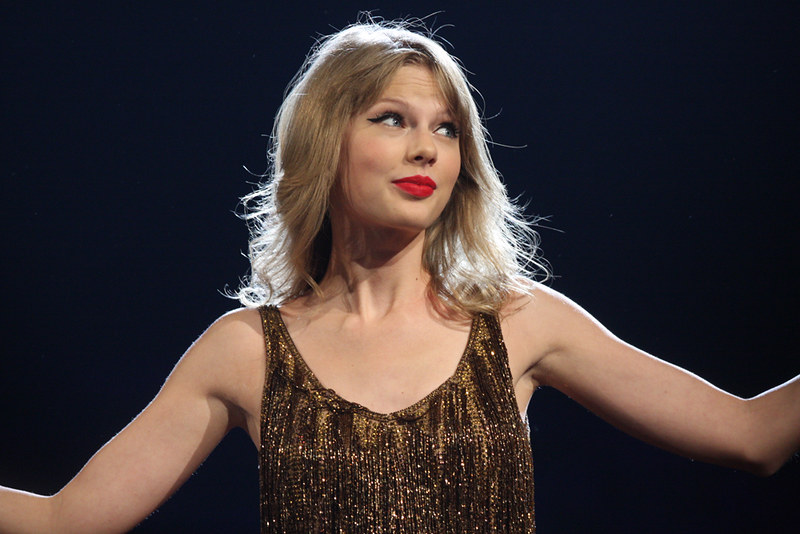An attorney for the two plaintiffs says that Taylor Swift has moved to dismiss simply because she is unhappy with an earlier verdict.
Singer Taylor Swift has asked a court to dismiss a copyright infringement lawsuit over her hit single “Shake It Off,” calling the judge’s ruling allowing the case to move to trial “unprecedented.”
According to NBC News, “Shake It Off,” released in 2014, spent four weeks heading the Billboard Top 100.
However, Swift was sued in 2017 by songwriters Sean Hall and Nathan Butler, who wrote the 2001 song “Playas Gon’ Play” for musical group 3LW.
Earlier this month, U.S. District Judge Michael W. Fitzgerald denied Swift’s motion for a summary judgment against Hall and Butler, finding that there is “a genuine dispute as to the potential substantial similarity between the lyrics and their sequential structure.”
Fitzgerald opined that a trial would help decide whether similarities between the two songs—including phrases like “players gonna play” and “haters gonna hate”—are sufficient to meet the legal threshold for copyright infringement.

“[Swift] argue[s] that even if there are protectable elements in ‘Playas,’ they are not substantially similar to those in ‘Shake’ (as a literary or as a musical work),” Fitzgerald’s wrote in his December 9th ruling. “Plaintiffs argue that there are at least seven elements in the selection and arrangement of the four-part lyrical sequence at issue that the chorus of ‘Shake’ copies from ‘Playas,’ including, for example: 1) Shake’s combination of tautological phrases; 2) parallel lyrics; and 3) grammatical model ‘Xers gonna X.’”
In another motion dated December 23rd, Swift attorney Peter Anderson called Fitzgerald’s decision something “no other court has done” and requested that it be “revisited.”
Anderson said that the judge’s finding did not include any extrinsic test in copyright law, which generally distinguishes between the protected and unprotected materials in an individual’s work.
In his filing, Anderson argued that, under an extrinsic test, the only similarity between the songs is that “both works use versions of two short public domain phrases […] that are free for everyone to use,” as well as two tautologies.
“The presence of versions of the two short public domain statements and two other tautologies in both songs … simply does not satisfy the extrinsic test,” Anderson said.
“Otherwise, Plaintiffs could sue everyone who writes, sings, or publicly says ‘players gonna play’ and ‘haters gonna hate’ alone with other tautologies,” Swift’s attorney added. “To permit that is unprecedented and ‘cheat[s] the public domain.’”
However, an attorney for Hall and Butler said that Swift’s new motion is “groundless,” and relies upon the same arguments Fitzgerald had already discarded.
“All it asks is for the court to reverse itself because Swift is unhappy with the ruling,” said attorney Marina Bogorad of Gerard Fox Law. “She raised these argument [sic] before, and they were rejected. The precedent is clear that such motions are routinely denied because the rules are not designed to give an unhappy litigant one additional chance to sway the judge. We are confident the Court will adhere to precedent here.”
Sources
Federal Judge Says Taylor Swift Can’t “Shake Off” Copyright Lawsuit
Taylor Swift asks judge to dismiss ‘Shake It Off’ copyright lawsuit
Taylor Swift asks judge to ‘revisit’ ‘Shake It Off’ copyright infringement lawsuit ruling
Taylor Swift Files to Dismiss ‘Shake It Off’ Lawsuit After ‘Unprecedented’ Ruling


Join the conversation!